Photographs: Reuters Harsh Roongta
One of the few bright spots in the unfolding Uttarakhand tragedy is the role played by the defence forces in search and rescue efforts. Unlike the politicians who have tried to hog the cameras, the armed forces have gone about undertaking the entire effort in mission mode in a highly professional manner.
As a nation, how have we repaid them? If newspaper reports are to be believed, those armed forces personnel who incur any disability during these operations will not be eligible for any disability benefits.
If true, this is on a par with the several ways in which Indian babudom asserts its superiority over the armed forces and, as a nation, it speaks volumes of our ingratitude that we allow such things to happen.
...
They are good enough to die for us but...
Image: An employee uses an electronic machine to check rupee note inside a bank in Allahabad.Photographs: Jitendra Prakash/Reuters
But are sarkari babus the only ones responsible for treating our armed forces badly? Our banks are not far behind. Till 10-12 years ago, most were not willing to provide loans to armed forces personnel.
They shared this treatment with others in the “illustrious” list of blackballed professions which included journalists, lawyers, police personnel, small time contractors, real estate agents and the like. The ostensible logic for such a “negative” list was that the bank’s own past data showed loans to this profile of consumers had larger defaults.
The fact that this argument was thin is proven from the fact that even new lenders had such “negative lists”, which they mindlessly copied from the existing lenders in the market.
...
They are good enough to die for us but...
Image: An employee counts currency notes at a cash counter inside a bank in Agartala, capital of Tripura.Photographs: Jayanta Dey/Reuters
In fact, such “analysis” was also used to stamp several large areas in the city as “negative” and if you happened to stay in those, you would have a tough time getting a loan. A quick scan of this geographical “negative” list proved this was a thinly disguised attempt at denying loans to the minority community, since most such “negative areas” were populated by that community.
The good news is most banks have moved away from such “negative” lists. The biggest contributor for such movement has been the advent of credit bureaus (popularly called CIBIL after the largest of such bureaus).
...
They are good enough to die for us but...
Image: An employee counts rupee notes at a cash counter inside a bank in Agartala, capital of Tripura.Photographs: Jayanta Dey/Reuters
The bad news is some banks, especially the smaller ones, continue to have such blatantly discriminatory “negative” lists. It is such practises that give banking a bad name, especially when nobody is willing to even acknowledge that such practices exist, though it is an open secret in trade circles.
The Reserve Bank of India has washed its hands off the affair by requiring that banks provide reasons in writing for rejecting any loan or credit application. Banks rarely reject loan applications in writing and when pushed by applicants, the reasons are mentioned in normal bureaucratese such as “the application does not meet our credit norms”.
...
They are good enough to die for us but...
Image: An employee checks a currency note at a cash counter inside a bank in Mumbai.Photographs: Rupak de Chowdhuri/Reuters
So, what is wrong with such practices that an entire column be devoted to it? Clearly, any reasonable person will be outraged that the banking system has placed our soldiers in the lowest hierarchy of the new “caste” system created. In fact, even for other categories, the very existence of this “caste” system is outrageous.
After all, access to finance should not be denied on flimsy or discriminatory grounds. If the regulator wants to take action, it is not very difficult to ask for the internal credit memoranda of banks to discover which ones continue to perpetrate this system.
...
They are good enough to die for us but...
Image: An employee counts currency notes at a cash counter inside a bank in Mumbai.Photographs: Rupak de Chowdhuri/Reuters
Even if no other action is taken the least we can do for our valiant soldiers is to get them out of their “shudra” category in this hierarchy. After all, there can only be one answer we can give to a soldier who asks, “We are good enough to die for you but are we good enough for you to lend us money?”
The writer is CEO, Apnapaisa.com

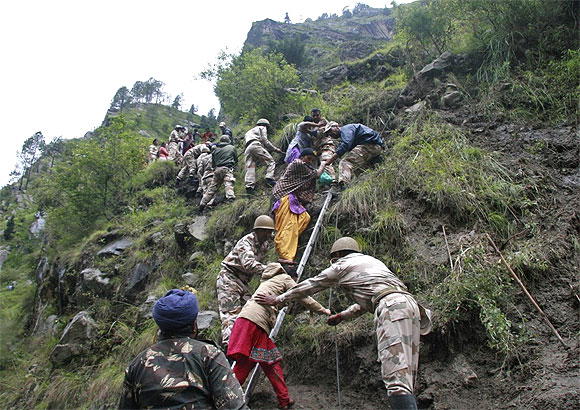
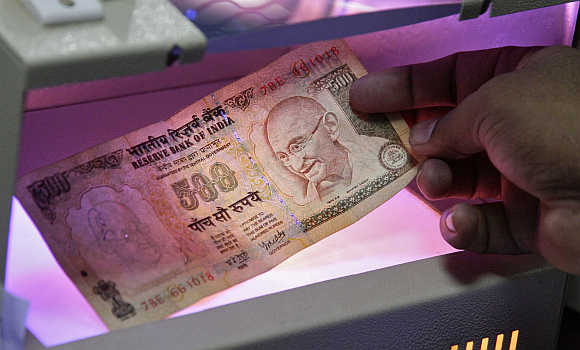
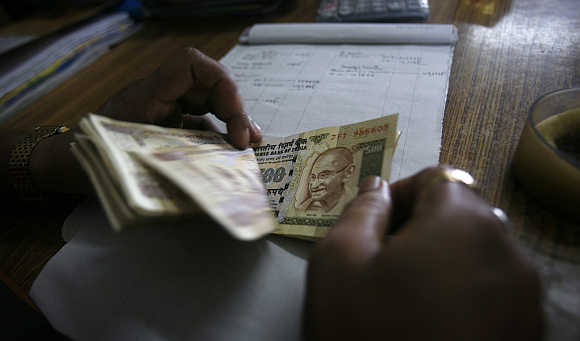
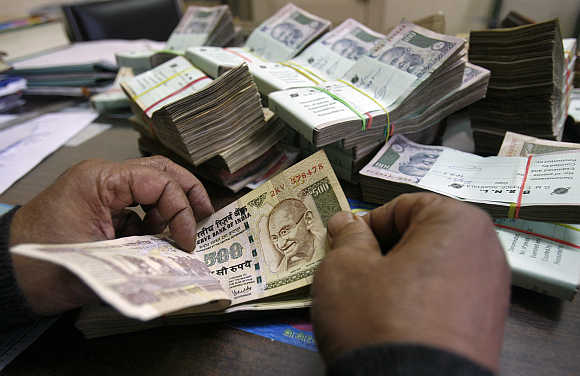
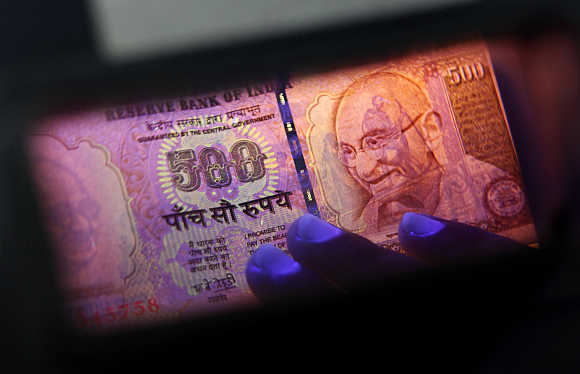
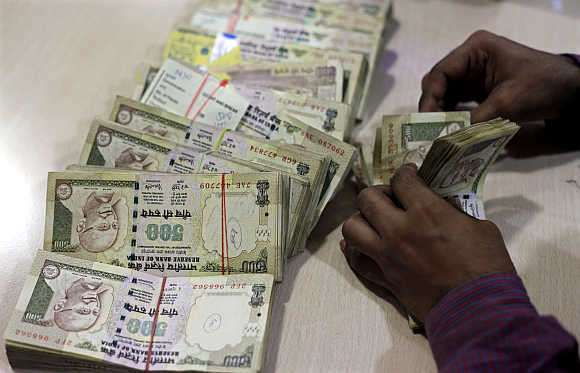

article